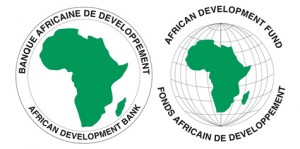AfDB approves €200m loan to support Gabon’s economic reforms programme
 The Board of Directors of the African Development Bank (AfDB) has approved a €200 million loan to Gabon, to support the country’s Economic and Financial Reforms Programme (EFRSP),
The Board of Directors of the African Development Bank (AfDB) has approved a €200 million loan to Gabon, to support the country’s Economic and Financial Reforms Programme (EFRSP),
The loan aims to revive economic growth by strengthening the sustainability of public finances, as well as the structural transformation of the economy in a context marked by the recent oil price decline, which has seriously hit the economy, according to a press release available on AfDB’s website.
It says the loan is the first of two programme-based General Budget Support (GBS) operations covering the 2016-17 period for an indicative total financing of €500 million supporting the implementation of reforms aimed at unlocking Gabon’s significant growth potential.
“We look at these operations within discussions we had with the Economic and Monetary Community of Central African States (CEMAC), and think, this is our response to the fall in oil price that has had a significant impact on Gabon’s economy. This is a great support we are providing the country, in collaboration with other development partners,” Bank Group President, Akinwumi Adesina was quoted as saying.
“What we need most is to look at things comprehensively and help our countries to implement the H5s,” he added.
Gabon has experienced strong economic growth during the first implementation phase of the emerging Gabon Strategic Plan (EGSP), with the economy growing at an average of 6 per cent (2010-2014). Growth was driven by an increase in the public investment rate estimated at 22 per cent of the budget, particularly in the infrastructure, as well as construction and services sectors.
However, emergence of fiscal and external imbalances, compounded by the lack of economic diversification, has put Gabon’s prospects at risks. Falling oil revenues have resulted in a growth slowdown, with real GDP growth down to 4 per cent in 2015 against 5 per cent in 2014, it said.
Declining oil prices have also weakened the macroeconomic stability of Gabon, through the negative impact on public finances, external balances and public debt. These have also highlighted the vulnerabilities of a hydrocarbon-dependent growth model and public spending.
It further noted that the government’s economic reform programme seeks to shift from a hydrocarbon-based growth model with limited impact on poverty reduction, to a more diversified, inclusive, job-creating and private-sector-led growth model.
The EFRSP aims to strengthen fiscal consolidation through increased revenue mobilisation and expenditure rationalization with a particular emphasis on enhancing payroll and public debt control, as well as public investment effectiveness; support economic diversification through improving the investment climate, access to finance and agricultural sector competitiveness.
By Pamela Ofori-Boateng
Copyright ©2017 by Creative Imaginations Publicity
All rights reserved. This news item, or any portion thereof may not be reproduced or used in any manner whatsoever without the express written permission of the publisher except for the use of brief quotations in reviews
